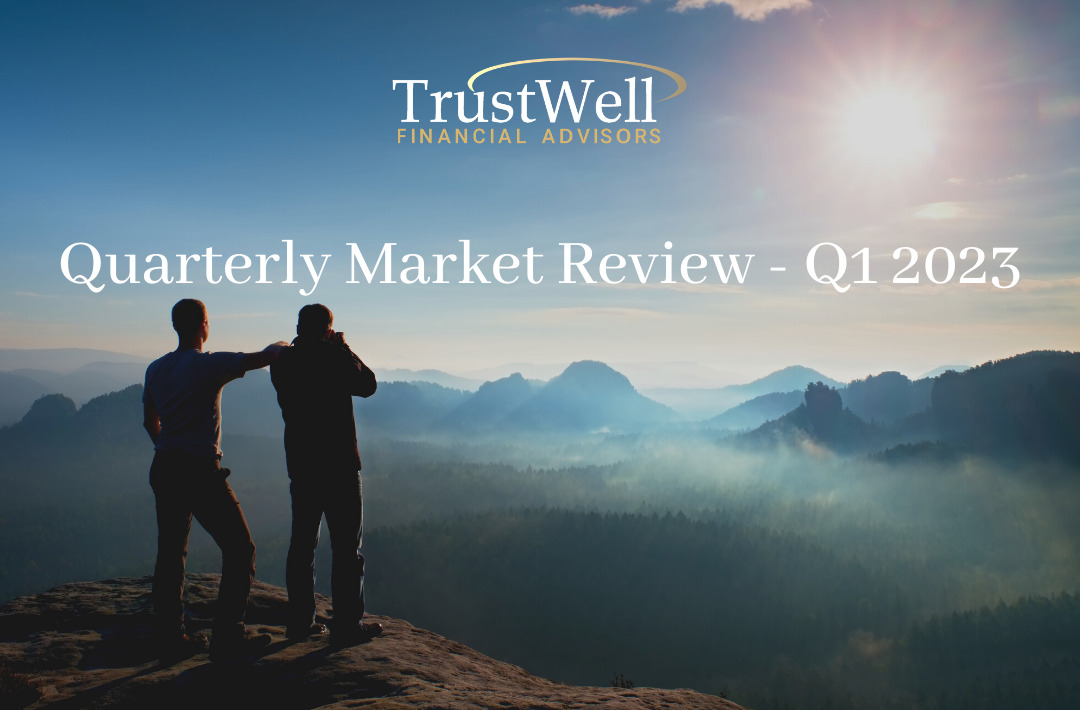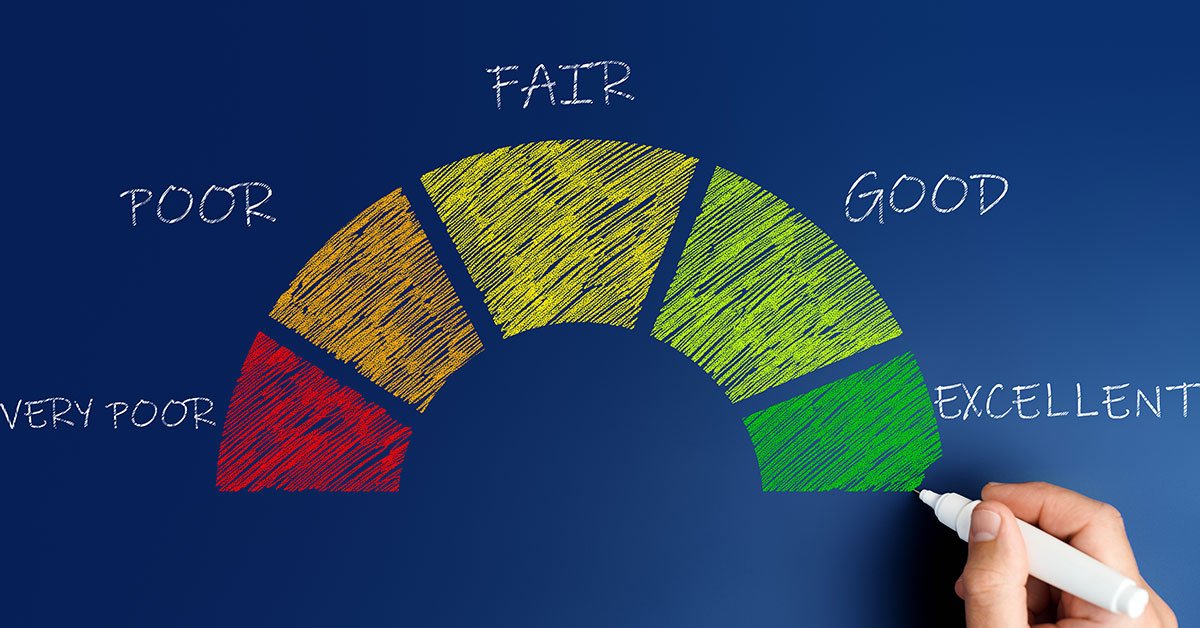
Quarterly Market Review April 2023
April 1, 2023
The Importance of Your Credit Score
June 1, 2023By Chris Daunhauer
I traveled west to Texas last month to spend some time with a friend that my wife and I have come to know and love over the last few years — a young man named Jim from South Carolina who boarded with us while he was attending college in Jacksonville. (Renting out our spare bedroom has been a great choice for us, by the way – additional income and the chance to make some lasting friends.)
Jim graduated from a two-year technical program at FSCJ and then leveraged that training to get a high-paying job in Midland, Texas. Midland is oil country, and home to the Permian Basin. (I noticed that most everybody I talked to in Midland was foursquare behind “US energy independence,” which I venture would require plenty of Texas oil.) Midland exists only because of oil. It’s hot there, and dry, and flat, and the wind blows nearly all the time.
West Texas is nothing like Jim’s hometown in central South Carolina or ours here in northeast Florida. People are friendly in Midland, and there’s economic vibrancy there, but trees and grass are scarce and it’s not a pretty place. It’s also half a continent away from Jim’s family and the friends he grew up with.
During the week I was in Midland, we ate a lot of tasty TexMex, we did a mini road trip to hike up to a high peak in Guadalupe Mountains National Park, and we spent many hours talking about personal finance and life choices. Jim has the energy of youth, he’s disciplined, he wants to do well, and he asks lots and lots of questions.
I tried to keep up, and I answered as many of his questions as I could. Jim comes from good stock, but he wants to make his own way, and hearing reinforcing wisdom from a non-family member who happens to be a financial planner is helpful to him. Before I left Jacksonville to visit him, my wife coached me up a bit. “Think big picture” she said, “but be practical. Listen before speaking, and don’t be preachy!” I tried. Really. And I really enjoyed my visit with Jim. Most of our conversations were off the record, but here’s two of the topics he and I talked over multiple times during that week…
It’s OK to rent. Really.
Jim’s currently leasing a one-bedroom apartment near his job that’s also convenient to his favorite stores and his gym. It fits him well and it does not cost him much in relation to his monthly income. He likes renting. And he loves the particular apartment he rents. It’s in a recently built apartment complex, and he’s the only person who’s ever lived in his unit. Unfortunately, Jim feels pressure from his co-workers, his family, and the popular culture to hurry out and buy a house. He’s swayed by the conventional wisdom that renters are second class citizens, and that renting is just “throwing money away.”
“I really like where I live now” Jim said. “I’m happy to be a renter, but I’m ashamed to say so.”
I told him renting for a while is fine. It’s smart, even, until he knows for sure where he wants to live, builds up some credit history, and has a healthy down payment. Owning would probably be better over the long term, but Jim harbors hopes that he can get a job transfer back east in a few years. I told him if that’s his plan he should be a renter while he’s in Texas. And because there aren’t many one-bedroom houses for sale, buying vs. renting would automatically mean buying more space than he really needs.
“But what about the tax advantages of owning?” he asked. “Aren’t mortgage interest and property taxes tax deductible?”
I told him that those are technically deductible, but with the recent doubling in the standard deduction taking on those expenses might not reduce his taxes. And even for those who itemize, being able to deduct interest and taxes doesn’t make them free. The great tax advantage in owning a home is the non-taxability of any capital appreciation, but appreciation normally takes five or more years of ownership to grow to the extent it outweighs closing costs and commissions, and annual maintenance and repairs.
We cruised a few neighborhoods Jim likes and we did some screen shopping on Zillow and realtor.com. Two of his coworkers have recently won transfers out of Midland and both of them have asked Jim to consider buying the houses they bought in Midland just a couple years ago. We put pen to paper and did some calculations on the monthly expense of renting vs buying one of those. At current prices and interest rates (even assuming 20% down), the numbers were discouraging, but clear. Buying even a modest house would have Jim paying lots more per month (in interest alone) than he is paying now in monthly rent. And that does not include principal reduction, HOA dues, taxes and insurance, and ongoing maintenance and repair expenses.
Don’t be in a hurry to buy was my advice. You’re young, you’re single (wives tend to want to pick their own houses, you know) and you’re already angling to leave Midland. I’d keep renting, even though it means foregoing the opportunity to build equity, and enjoy the flexibility and low responsibility that you currently have as a renter.
A high paying job is not the same as a rich life
Jim’s job is stressful, but it pays very well. Jim’s 25 years old with no dependents, he has no debt, and he’s on track to earn more than $100K this year. (And that’s just in wages. It doesn’t include the fringe benefits, 401k match, and company pension that he receives on top of those wages!)
That level of income is a great advantage for Jim and a great career accomplishment for young adult just a few years out of high school. But he’s already finding that high income anticlimactic. I’ve been warning him about this for the last couple years as he worked through college and began applying for high paying jobs.
Jim has heard my lecture on the “hedonic treadmill” many times in past years. That’s the term behavioral economists and on-the-ball planners like those at TrustWell use for the endless (and ultimately fruitless) pursuit of more and more money and possessions, nicer cars, bigger accounts, etc. Jim admitted that I was right — he’s making loads more money each month than he ever dreamed and yet it’s less satisfying to him than he thought it would be.
“Maybe high income does not ensure happiness?” I asked. “And if so, wouldn’t you want to find that out at age 25 vs age 75?”
“Sure,” said Jim, “but shouldn’t I always try to make as much money as I possibly can?”
“Maybe,” I answered. “But maybe not. I think it depends on what earning the extra income costs you.”
“You mean in taxes? Or in other ways?”
Jim works 6 days a week most weeks, and he reflexively says yes to all the overtime offered. His only friends in Midland are the people he works with. He’s not plugged into a church or any civic group. He does not know his neighbors and he has no apparent hobbies.
“Your bubble here in Midland is awfully small,” I told Jim. “I’m worried you might be becoming what western naturalist John Muir saw in himself when he wrote ‘I am losing precious days. I am degenerating into a machine for making money. I am learning nothing in this trivial world of men. I must break away and get out into the mountains to learn the news.’”
I told Jim that no amount of income can compensate for loneliness and exhaustion.
“What do you do when you take vacation days? Are you exploring this part of the country?” I asked him.
“No. I go home to South Carolina and just lounge around my parents’ house. I enjoy being back there, but the days fly by and soon I have to come back here to Texas. It’s discouraging in a way.”
I told Jim I had similar experience when I was in the Army in the late 80s. I spent all my leave and lots of my money every year just going back to Ocala. I now regret not exploring some of the interesting places I was stationed. “I probably could have afforded it,” I told Jim. “And I know you can now.”
Jim is diligent about maxing out his 401k and he had accumulated almost $50K in a non interest bearing checking account. He knew having that much cash just sitting in his checking was dumb. But he felt stuck from not knowing what to do with it. So, I helped him open some savings accounts at a web bank and a Schwab brokerage account for access to better yielding investments. He established some automatic savings plans for his next car and for buying a house one day somewhere. “That’s all great,” I told him. “Now put one in for vacations. Save a few hundred dollars each month for vacations and trips.”
On one of my last days in Midland I helped Jim file his tax return for 2022 using TurboTax software on my laptop. We worked through what the numbers on his return represent and what his marginal tax bracket for 2023 is likely to be and options for reducing his effective tax rate.
“Seems like I pay an awful lot of money in income and payroll taxes now that I’m working,” Jim observed. “And sales taxes, car tags, etc. are on top of those. Are the other 25 year olds paying as much tax as I am?”
I laughed as I answered that one. “Only those who make as much money as you do!”
I told him to file high income taxes under “wonderful problems to have” and keep working hard and making money, but to save some time and energy for the other, better, parts of life. To get into the mountains once in a while. To learn the news. I told him that the most important things I know have never appeared in the Wall Street Journal or any mutual fund prospectus. I told him that marriage is hard but good. I told him how much fun my wife and I get from our charitable giving. I told him that he has already used up about 1/3 of his days on the planet. I told him that he would one day look back on his time in Midland as an opportunity, one that he either grasped or squandered. I told him that he was loved by God and maybe 8 to 10 other people, and that my wife and I are happy to be in that number. Jim took all this pretty well, I think. But I was a little preachy.
He has a bright financial future. My wife and I are hoping he’ll make equally smart choices in the many things more important than money.




